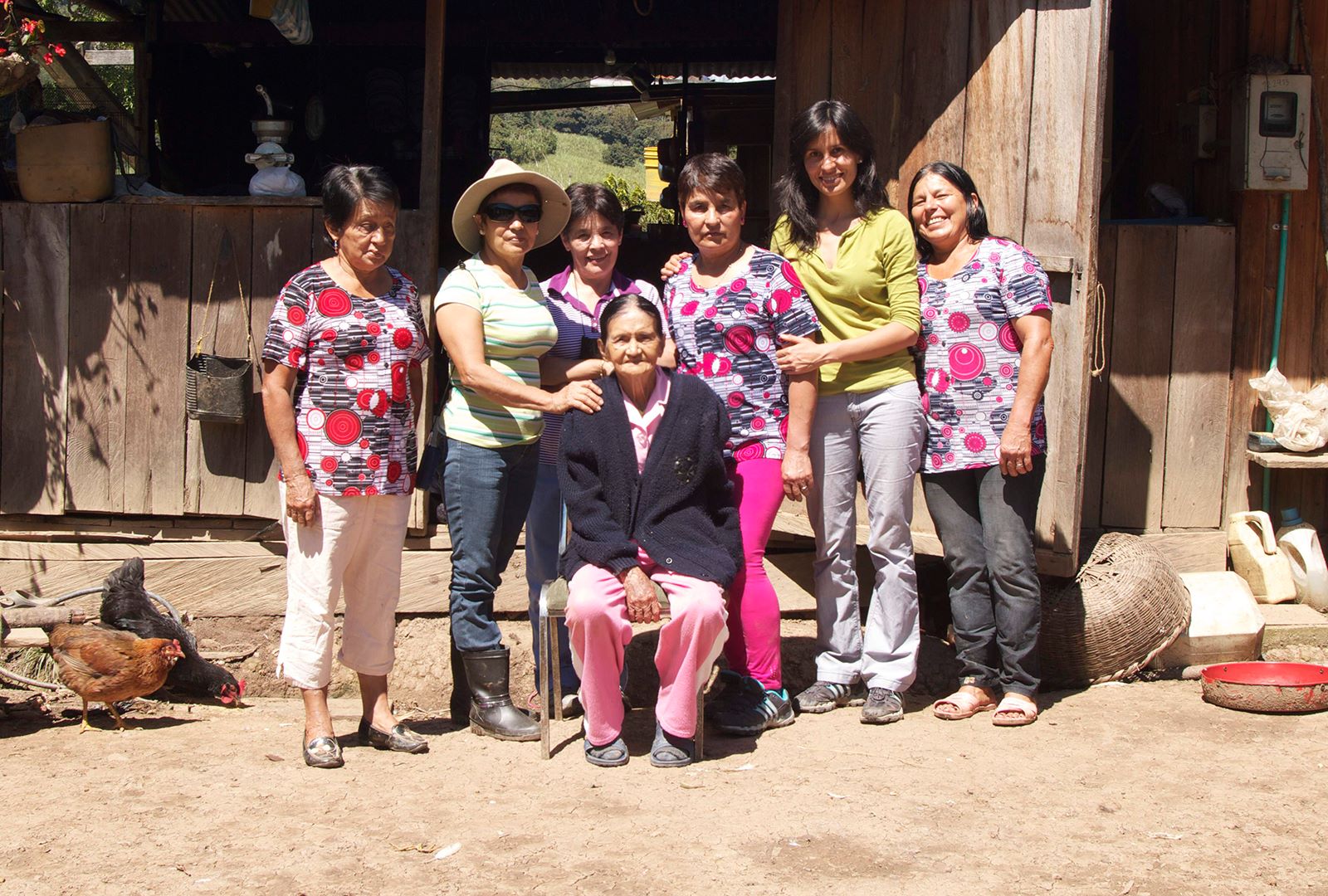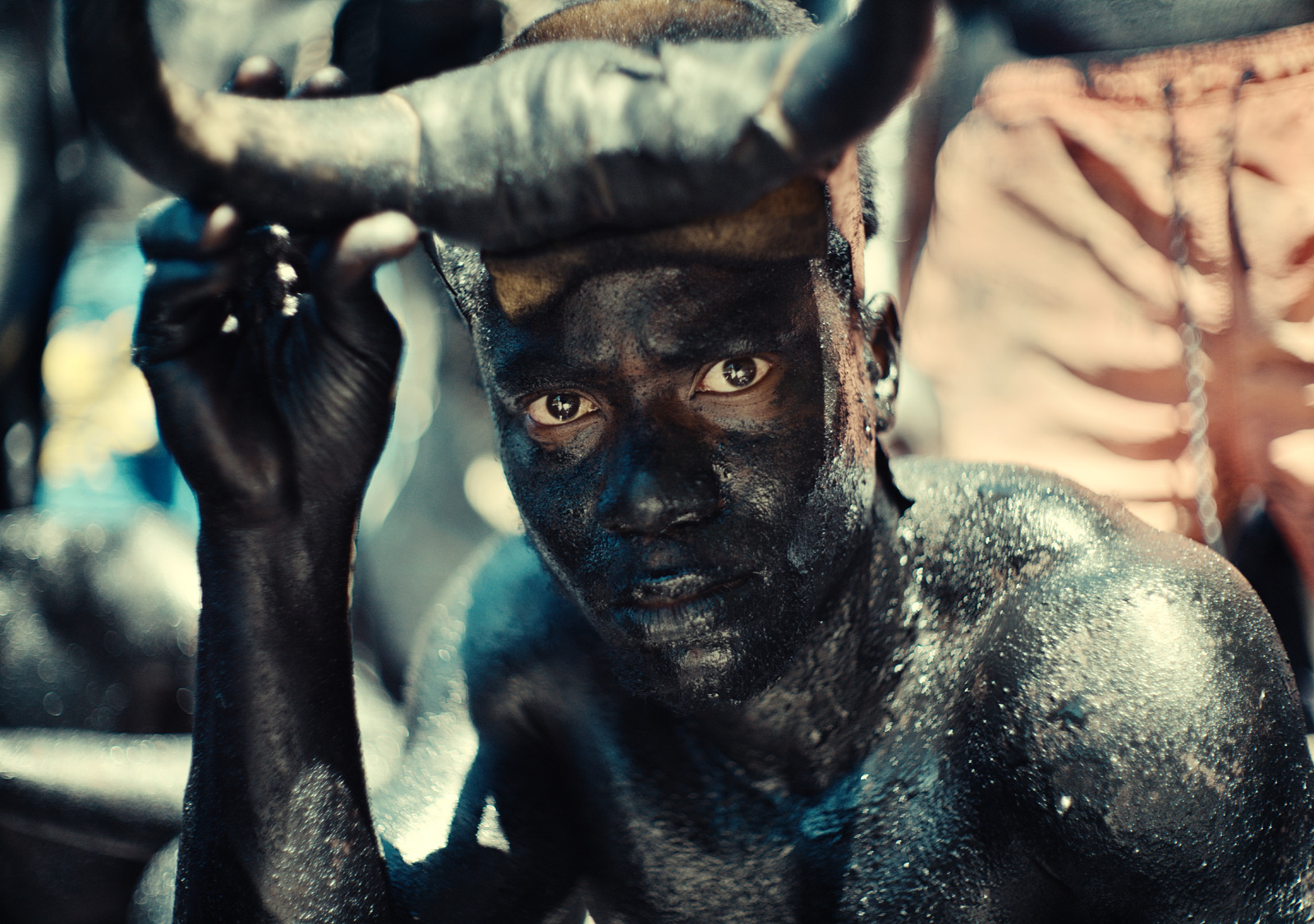We, the Women (Nosotras)
(Colombia, 70 min.)
Dir. Emilce Quevedo Díaz
Programme: Persister (World Premiere)
Generational trauma is never an easy or comfortable thing to explore. In the case of Colombian director Emilce Quevedo Díaz, she’s chosen to use her camera to explore the legacy of silence and pain in her own family.
The film begins on an uplifting note, cataloguing the filmmaker’s own wedding. But instead of celebrating her honeymoon, Díaz travels to her grandmother Sixta’s remote home in the Colombian countryside to spend time with the elder after a terminal cancer diagnosis. Three generations of women have gathered to nurse their matriarch and excise old wounds. It’s clear that decades of misogyny, domestic violence, religion and the weight of tradition have truly left their mark on each and every one of them.
Sixta herself is mighty in her strength, despite her physical frailty. We quickly learn that she gave birth to 11 children over the years – alone every time. She speaks of a loveless childhood, a forced marriage, and abuse at the hands of those that should have shown her love and not violence. She relates a story about chasing her husband with a knife, finally having had enough and realizing God gave her two hands so she could fight back. But for the majority of her life, Sixta has believed the only way to make it through was to remain silent. She passed this sentiment on to her daughters and granddaughters.
What’s clear in the slow, intimate, and painful conversations that the mothers, sisters, and daughters begin to have is that, while physical violence was a factor of everyday life, it’s the emotional scars that have remained and never truly healed. Sixta’s treatment of her children, especially her daughters, was similar to her own unforgiving upbringing. There was little room for affection–the only way through, she believed, was forward. Once the seal is broken on the grievances of the past, they spill forth like a cataract over an outcrop of the nearby Andes.
The film’s subjects are remarkably open to exploring their pasts, despite being so silent up until this point. Only once does one of Díaz’s aunts ask for the camera to be turned off and even that comes after a candid conversation about the resentment she holds for Sixta. The director even apologizes to her grandmother for the intrusiveness of the camera and her questions, but Sixta is quite sanguine about it – seemingly realizing the importance of honesty and forgiveness in her last days.
We, the Women itself is simply done. The emotions and revelations are what give the documentary its heart. Díaz smartly lets these women take centre stage throughout and avoids any flourishes that risk overpowering their voices. And at just a crisp 70-minute runtime, she doesn’t allow for any unnecessary drama or superfluous details — anything that needs clarification or context is given through her own unobtrusive voiceover.
Although the film focuses on the women of the family and the trauma they’ve faced over the years, largely at the hands of boyfriends and husbands, We, the Women does briefly focus on Díaz’s father, Juan. Entering the picture after Sixta has passed, Juan joins the family as the filmmaker gives birth to her own daughter, Iara. The family jokes about how he never wanted daughters and never had any sons – but under that ribbing is real hurt. When confronted with the question of ‘why?’ Juan admits to his failings and uses the exact same language as Sixta to describe his past actions: If I sinned, it was out of ignorance. Though the film tracks several stories of how the sons of the family were treated far better than any daughter, it’s clear in these short moments (and in earlier scenes about Díaz’s half-brother, Wilson) that they did not completely escape the pattern of abuse and emotional abandonment. Generational trauma harms everyone, regardless of gender.
We, the Women is an incredibly personal documentary but that doesn’t make its message any less universal. Understanding our legacies, familial and societal, is the key to forging a different, more positive path and to finding our own strongest voice. And now that these particular women have bravely learned to use their voices – to heal the past and own their present – it’s well worth our time to listen to the lessons they have to teach us.












